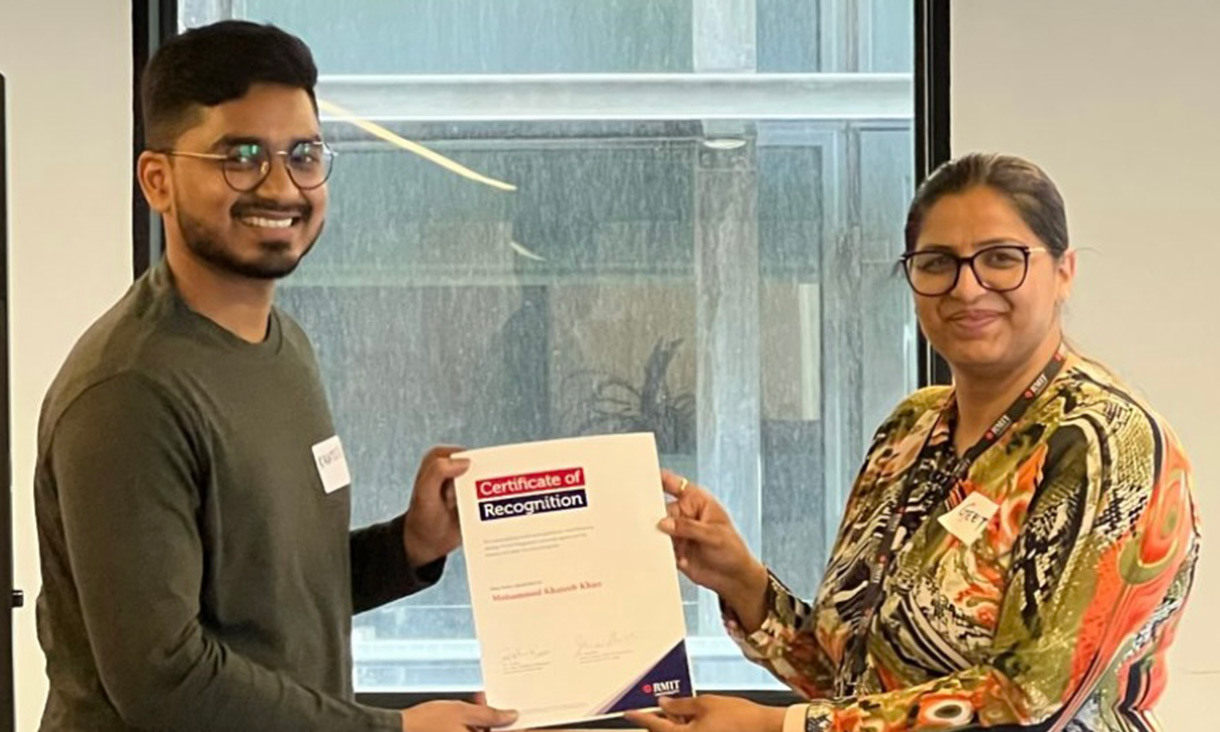One of her first projects after starting at RMIT was to write a course for the Masters of Cyber Security program, which consisted of researching and compiling a bunch of case studies. Throughout the course development process, Verma interviewed industry experts, RMIT staff and CCSRI members, which deepened her understanding of the cyber landscape and demonstrated the breadth of skills required within the sector. Verma’s knowledge in and interest of the field led her to join Matt Skerritt and Joanne Hall on an industry-based research project for TIDE. Working alongside her colleagues and fellow CCSRI members, the TIDE project is ongoing, focusing on security and vulnerability checks on a decentralised authority network.
Not only did Verma’s deep dive into the world of cybersecurity open doors in research, but her learnings and experience have enriched her ability to teach and interact with students in meaningful ways. Verma not only teaches the case studies she developed for the Masters of Cyber Security students, but within her role as primary Course Coordinator for the program, she also helps students liaise with industry and secure internships. It’s fitting that Verma is a key touchpoint for students at the start and the end of their Masters of Cyber Security journey, as her proactive approach to engagement and enthusiasm for seeing her students grow is genuine. Verma reflects on the past two years at RMIT and her role with internship placements,
I’ve been able to establish a lot of industry connections, and I really enjoy matching our students with our industry partners.
She’s also quick to acknowledge that it’s a team effort, “I am not alone. I always have help from Matt or Amy or Joanne, it will always take more than one staff member to best mentor our students.” Verma will share further insights into her work with industry and student engagement at AISA’s upcoming CyberCon in Melbourne. Featured within the conference’s Think Tank speaker series, Verma will speak to how universities and industry can better connect and bridge the gap using case studies of research projects from the cybersecurity classroom.
Looking further ahead, Verma is optimistic about the future of the cyber security sector. Even though the lack of gender diversity in the classroom is still noticeable, it’s improving. Verma estimates about 70% of her classrooms are still male, but the enrolment among females is increasing. Once again, Verma demonstrates that making progress is about being proactive and strategic. “When I am engaging external speakers to come and visit the classroom, I make the effort to invite women when and where possible, because it’s important to have that representation. As a result, roughly 40% of the speakers that come to my class are female.”
I hope that all of these individual efforts will add up to something bigger.
Our conversation ends, Verma makes sure to highlight that the Masters of Cyber Security teaching staff is more than 50% female – sometimes we have to be the change we wish to see in the world.








